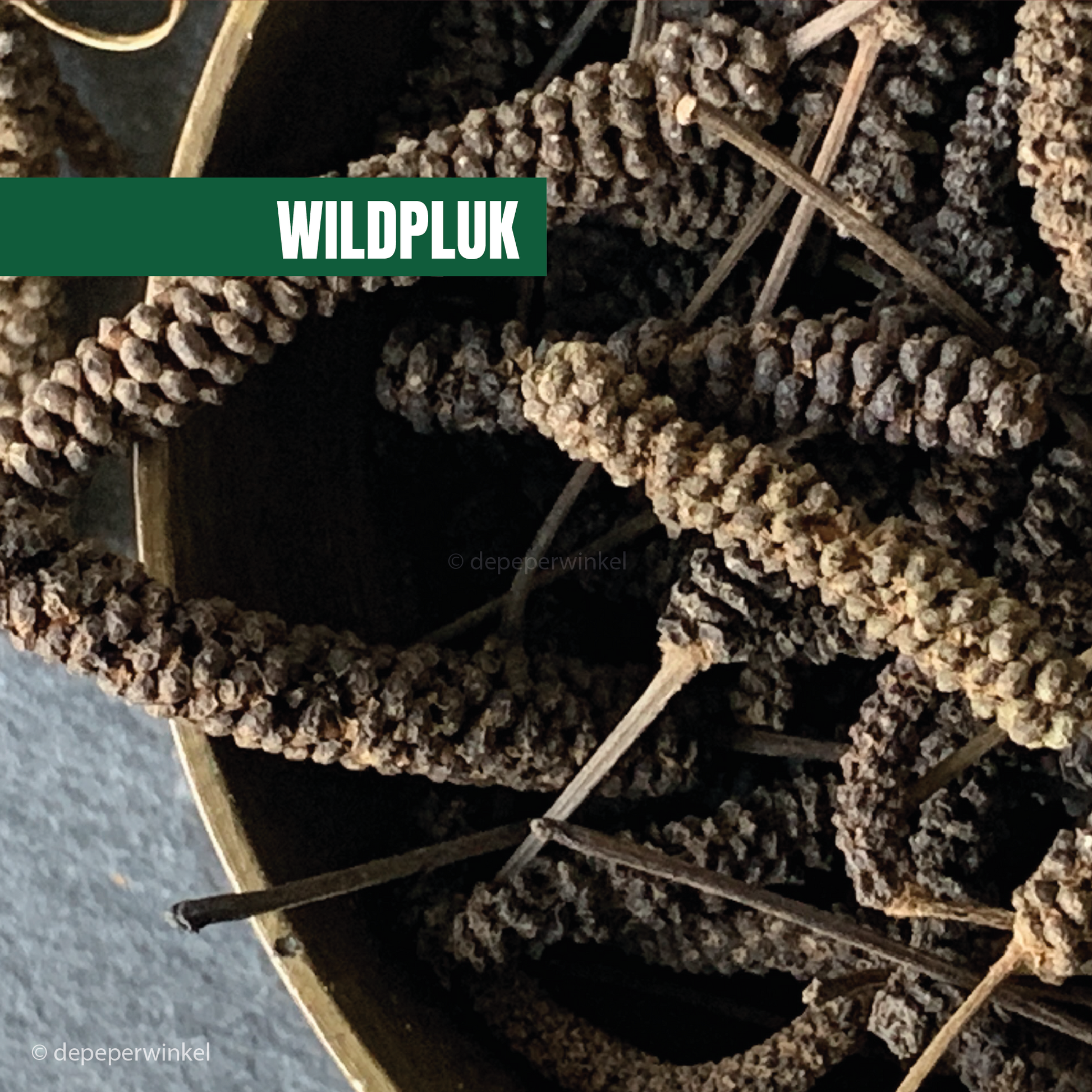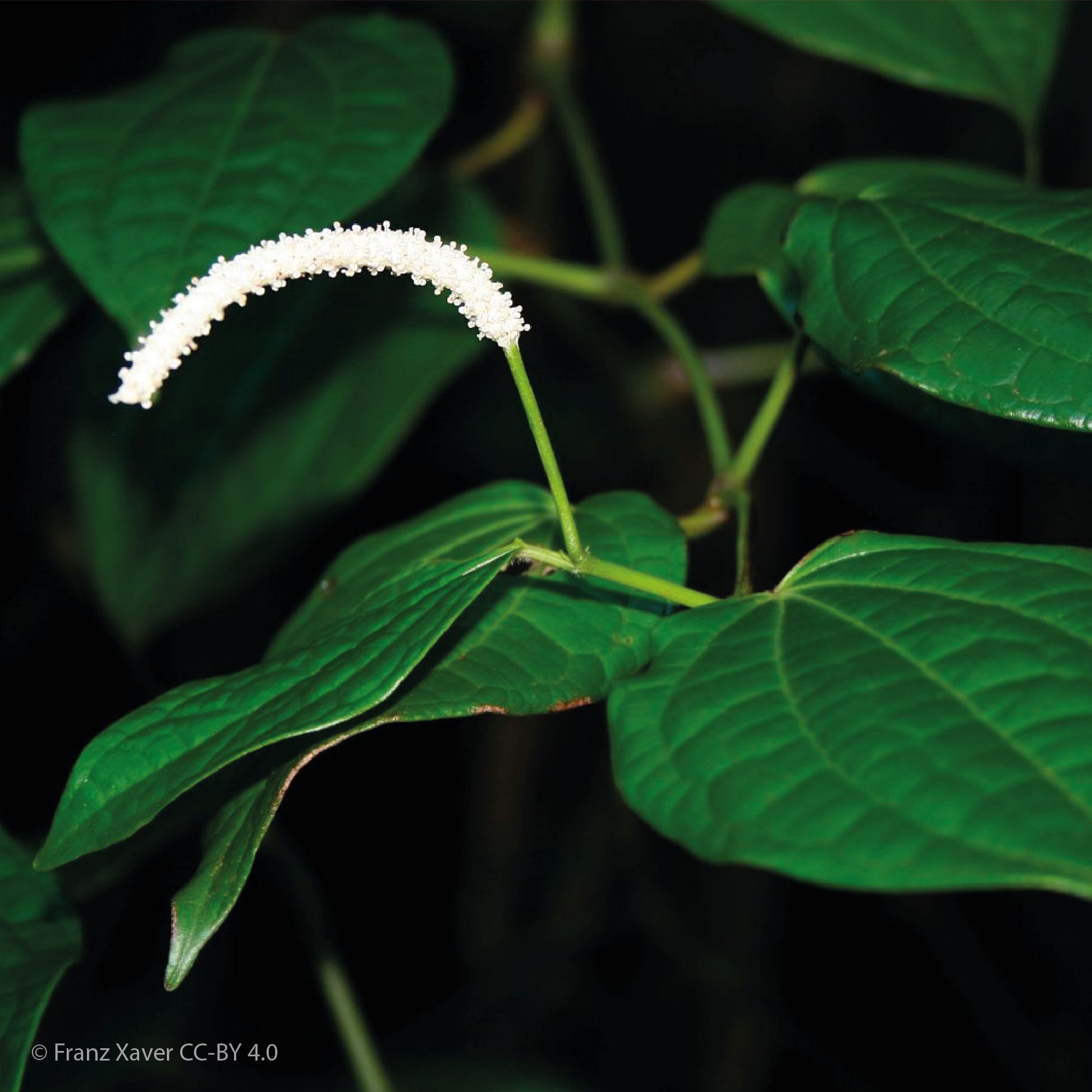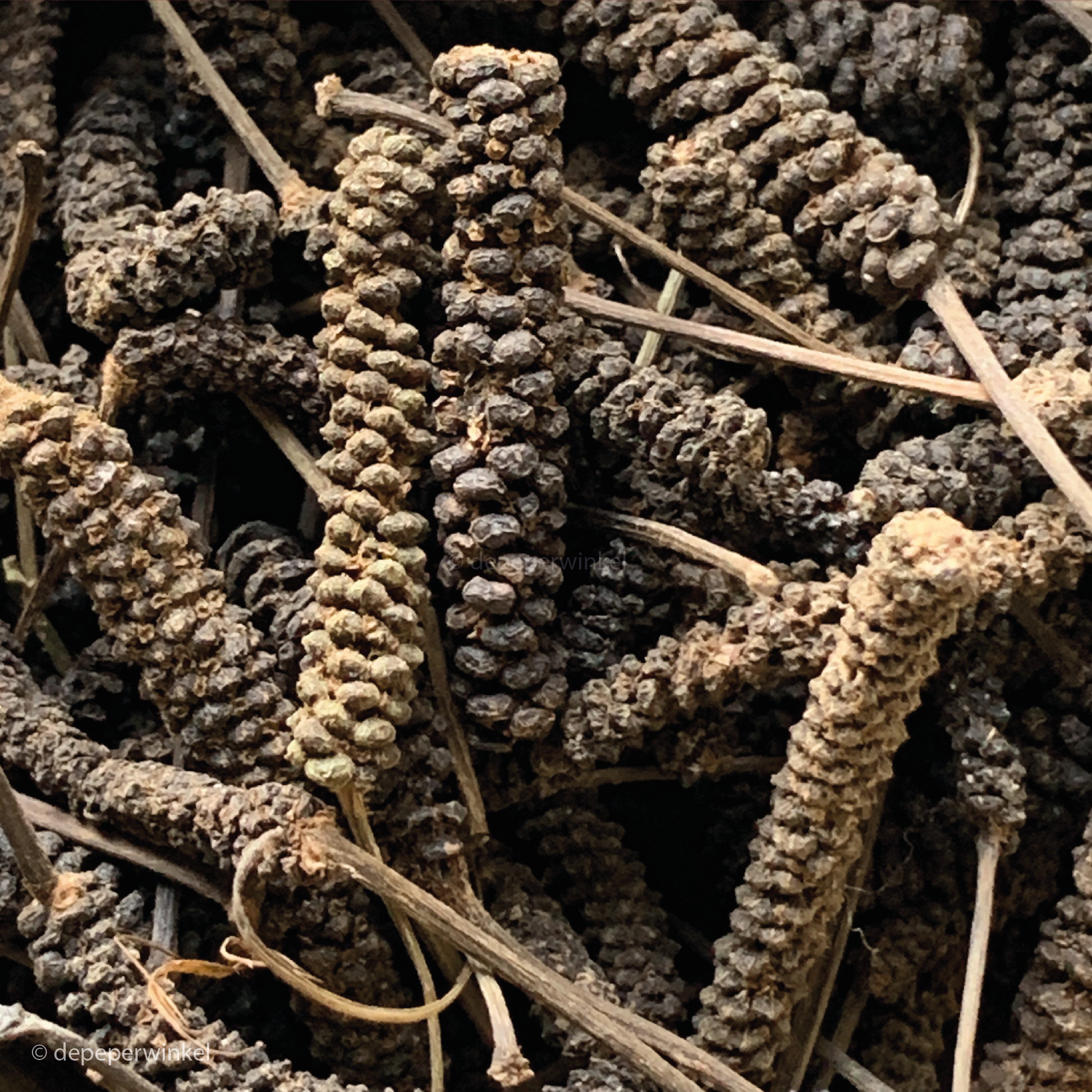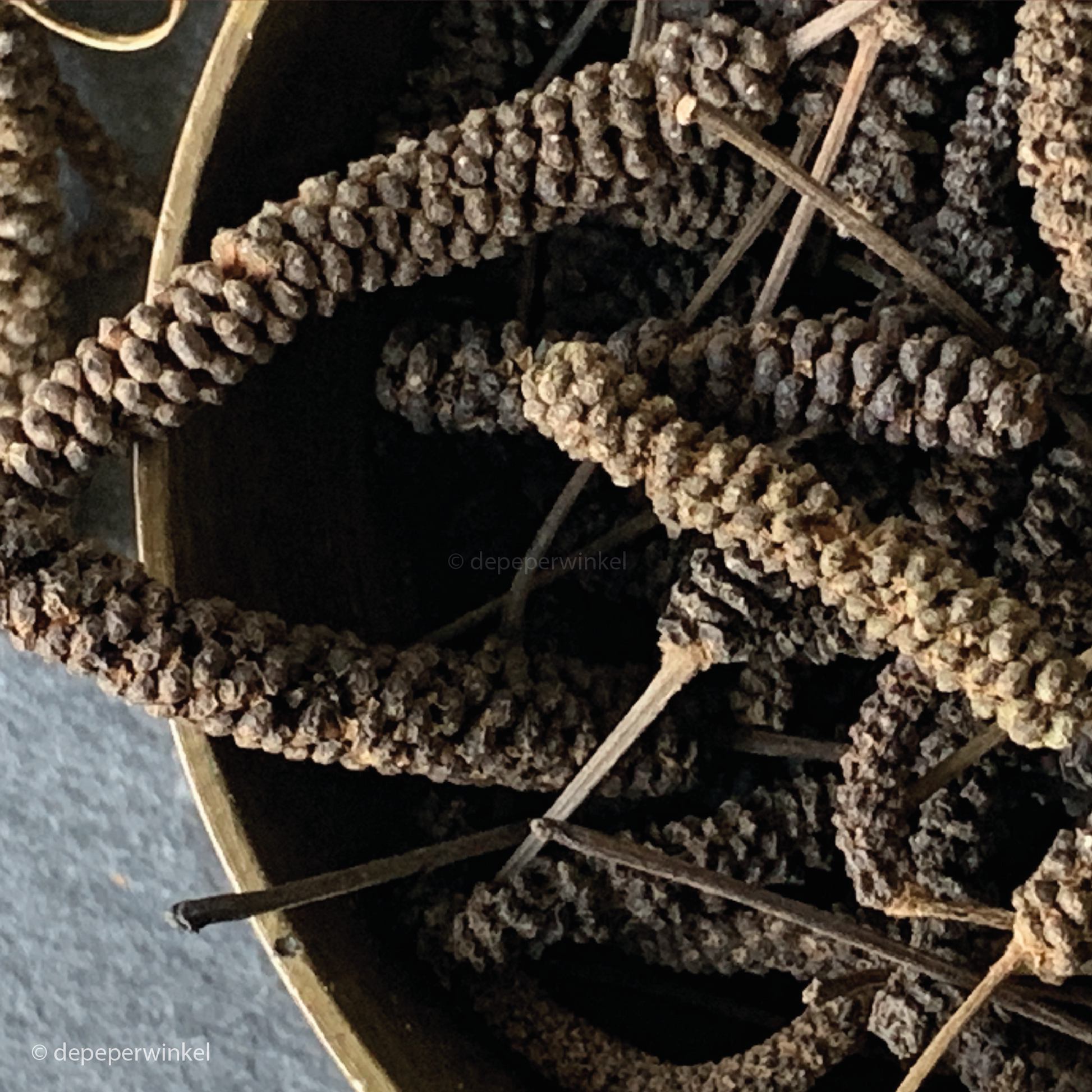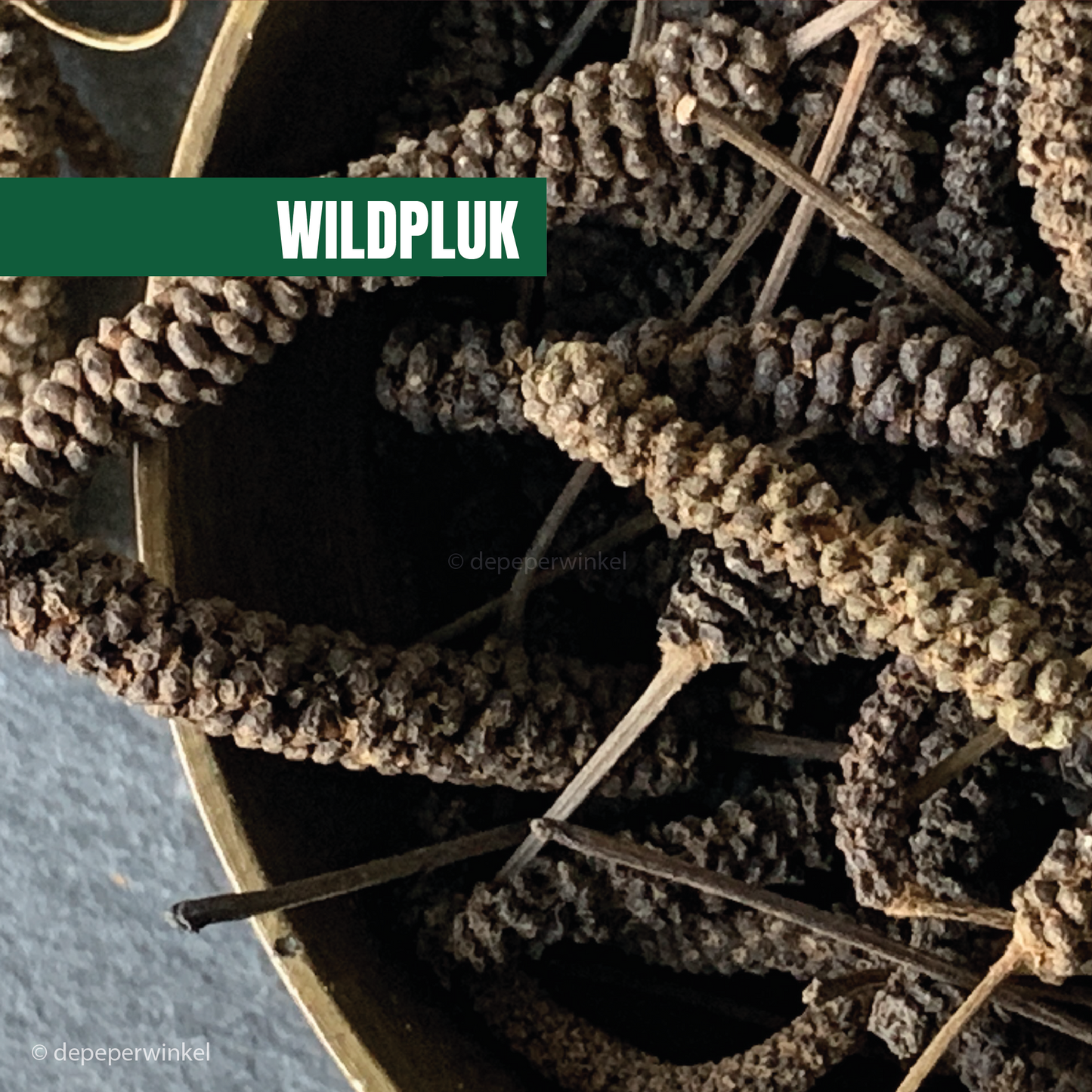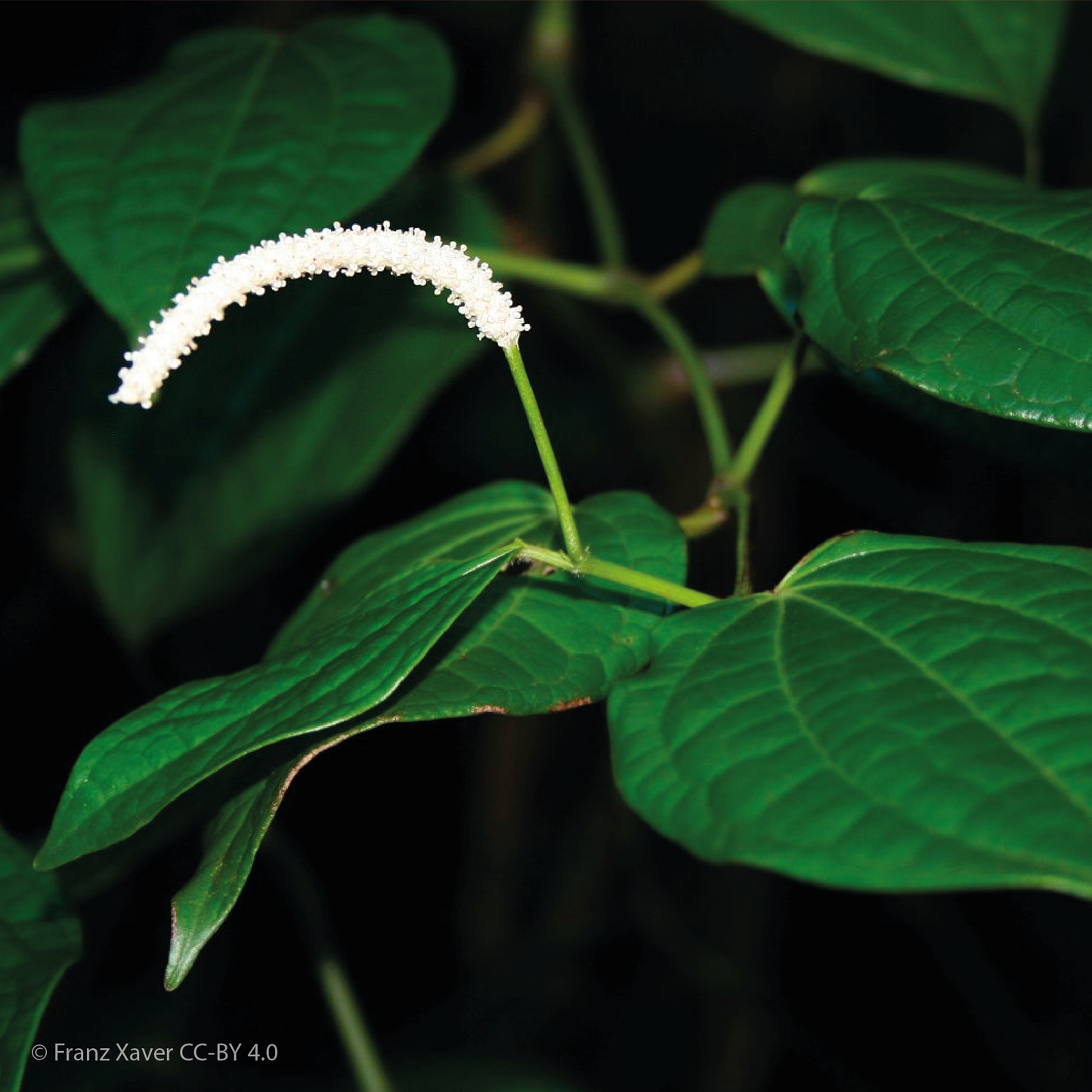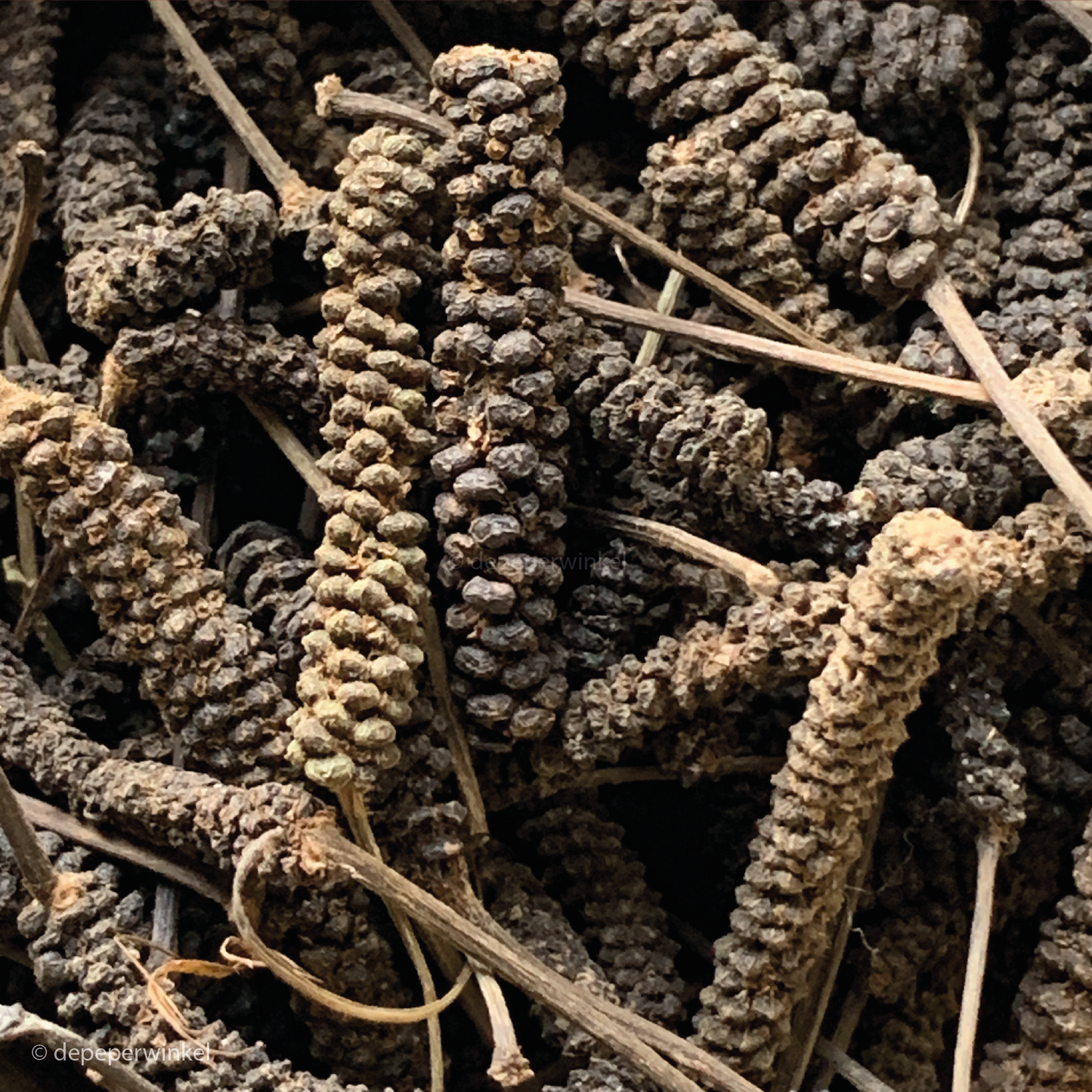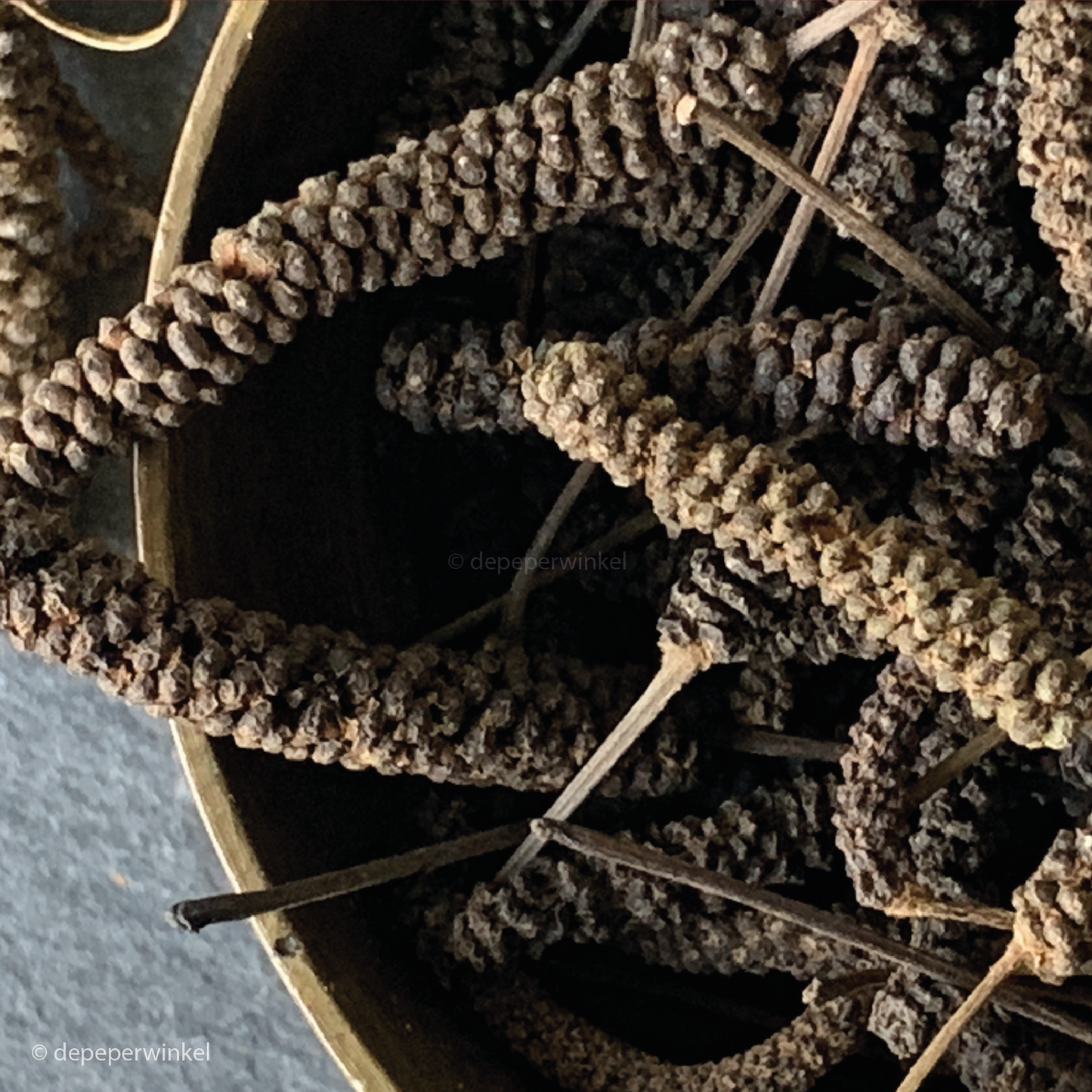depeperwinkel
Cape long pepper (timiz)
Cape long pepper (timiz)
In stock
Unable to load availability for pickup
This Cape long (forest) pepper is a hot, ripe pepper with a complex flavour. The catkins are much longer than the catkins of the Asian long peppers, averaging about 10 cm long.
The Cape long pepper (Piper capense) is a perennial, evergreen climber with broad green leaves. In shrub form it grows 2 to 4 meters high. The inflorescence is spike-shaped. The small flowers are hidden during the rainy season under the scales under which the seeds are also trapped during the winter. They are reminiscent of pussy willows.
The catkins contain round to oval seeds with a diameter of 2 mm. They are harvested whole in January, with the stalk, and are sold both fresh and dried. To distinguish this long pepper from the imported Indian long peppers (temist or farenji timiz) this native pepper is called abesha timiz, or simply timiz.,
The Cape long pepper grows in a zone from West Africa to Ethiopia, and also occurs in South Africa, hence the botanical name Piper capense. In southern Africa it blooms the plant from August to February and bears fruit from October to June. It can even flower all year round if there is enough water available.
In Ethiopia, next to the Piper capense grows also the Piper umbellatum, a pepper species originally from South America. Timiz is very popular in Ethiopia, unlike the South American pepper, which is hardly ever collected, let alone eaten. Incidentally, people are fond of the Asian long peppers, which are usually sweeter, and are imported in large numbers.
Most of the timiz in Ethiopia comes from the Bonga rainforest. For the farmers in Bonga, it is almost impossible to dry the peppers in the sun because of the weather conditions, which is done elsewhere. Drying in the sun takes ten to twenty days, depending on the number of hours of sunshine. The quality of drying in the sun is usually variable, because the conditions are difficult to monitor. . Usually, the peppers are therefore dried after they have been cleaned, on a bed of wood and bamboo laid, to cover to be dried on an open fire. This drying process takes only a few days, and takes place in a more controlled manner. The sun-dried peppers are much loved for their fresher color and more complex aroma, but rare.
Smell and taste
This long pepper is not so hot. The first impression you get from this pepper is that of a smoky, camphor-bitter pepper, a bit like the African cubeb or Ashanti pepper. Gradually you also taste tones of tobacco and resin in it. These are the main flavor components:
- α and β-pinene, woody pine scent, as in cumin, juniper and hemp,
- sabinene, responsible for the woody, camphor-like flavor of black pepper, among other things
- germacreen D, spicy woody
- α-cubeben, camphorous, like cubeb pepper,
- β-caryophyllene, sweet spicy and woody
- safrole, sasafras aroma, also present in cinnamon and nutmeg,
Culinary use and preparation
Due to its intense flavour, pepper is rarely used in Ethiopia in itself, but in the spice mixtures berber and mekelesha, a mixture of timiz, cinnamon, cloves, black pepper, nutmeg, black onion seed and black cardamom.
The easiest way to use long pepper is to cut or break the pepper into pieces and then grind or pound these pieces, for example in a coffee grinder that you have specially designed for grinding spices.
Cape long pepper combines excellently with lamb, goat meat, fresh goat cheese (in combination with olive oil and green herbs), duck, game and in general dishes in which cinnamon, cloves and nutmeg (ehuru) are (can be) used.
Features:
- 100% Piper pepper berries captivate
- origin: Ethiopia
Assortment
- available in glass and stand-up pouch (no test tubes)
- glass jar contains 30 grams
- stand-up pouches with a capacity of up to 30 to 300 grams
- larger quantities on request
Gift wrapping
- The jar is available in a tasteful gift packaging, consisting of a cube box filled with black tissue paper
- For an overview of our gift packaging, please refer to the gift packaging section
General advice
- use long pepper whole or broken. When grinding the pepper, grind your pepper shortly before use, and store any excess ground in a well-sealed jar.
- the whole or broken pepper is best used in stews, so that the pepper has time to integrate,
- add ground long pepper to your preparation at the very last moment
Save:
- save your long pepper in closed packaging
- preferably store in a dark, dry and cool place
- at least good until November 2026 (11/26)
- This expiration date is an indication
Batch number
The batch number helps us trace which supply an item originates from. It is stated on the packing slip and the invoice
